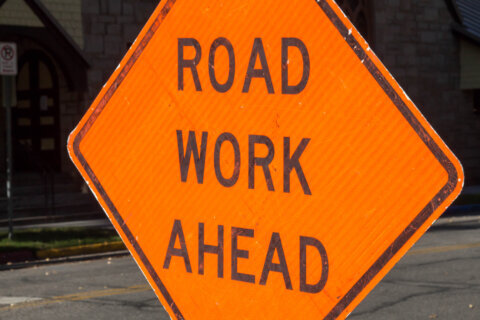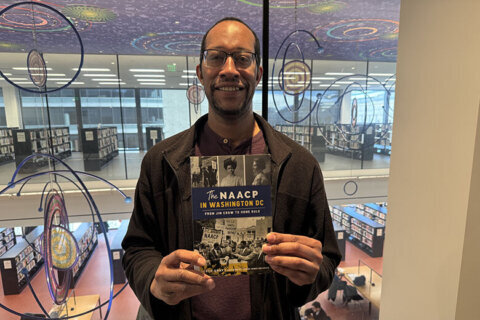Over the next five years, D.C. will see $3 billion come in from President Joe Biden’s $1.2 trillion infrastructure law, and billions more in funding will be up for grabs in the form of grants.
In preparation for the arrival of that money, and to put the city in a good position to compete for the additional dollars, Mayor Muriel Bowser on Thursday announced the Build Back Better Task Force.
One job of the task force, Bowser said, will be to come with recommendations on how to best spend the money the city will receive.
“We have a once-in a-generation opportunity to transform our infrastructure to get people back to work and to get people better connected across our city,” she said.
The task force will look at the city’s needs for improving roads and bridges, increasing bus service, protecting the energy grid against storms and flooding, and giving every resident to broadband internet. The mayor said recommendations will also be made on removing remaining lead pipes in the city and sprucing up streets and restoring rivers.
The task force will be made up of experts from inside and outside the D.C. government, Bowser said. The task force will be co-chaired by Rodney Slater, the former U.S. Transportation Secretary under former President Bill Clinton, and Jan Adams, of the product management company JMA Solutions.
Announcing the task force at D.C.’s Union Station, Bowser said the group will also look at how money can be spent to increase service and citywide access to the station.
That project, according to Bowser, is already being discussed with Amtrak, the U.S. Department of Transportation, The Federal Railroad Administration and the Union Station Redevelopment Corporation, which oversees the preservation and restoration of the station.
Bowser said she visited New York City’s newly opened Moynihan Train Hall, which led to ideas on how to add better connections for Amtrak, MARC, VRE and intercity buses. Plans for Union Station would also include more commercial opportunities, she said.
“So it’s a big deal, and it has a big price tag. That’s why the infusion of federal dollars is going to be key,” Bowser said.
The infrastructure law also includes $180 billion in infrastructure grants that cities and states can compete for. Bowser said the task force will also focus on putting the city in the best position to win those grants.
“Grants we can use to connect neighborhoods by addressing the legacy building of highways through predominantly Black communities,” Bowser said.
Without laying out a specific deadline, Bowser said the task force will have a “short timeline” for delivering recommendations to the city.
Some of the money coming from the infrastructure law is also earmarked for improvements laid out in Bowser’s budget for the 2023 Fiscal Year.








